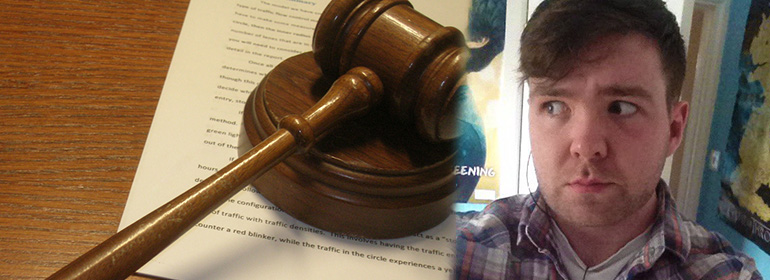Following the reduction of a lifetime ban on gay blood donation to a 1 year ban, Gay man drops legal case
Following Minister for Health Simon Harris’ decision to reduce the lifetime ban on gay blood donation to a one year ban, a gay student from Galway, Tomás Heneghan, has withdrawn his legal challenge.
Harris’ decision comes following the Irish Blood Transfusion Service’s recommendation that the lifetime ban be reduced, keeping in line with systems in place at other blood transfusion services in Northern Ireland and the UK.
The twenty-four year old student told the High Court Deputy Master Angela Denning that he was withdrawing his action after the Minister for Health announced the policy change.
EU Law
Gareth Noble, Heneghan’s solicitor, indicated that they were anxious that the change in policy be implemented without much delay as it is another important step towards achieving full equality for Ireland’s LGBT community.
He initially took legal action because he felt that the lifetime ban on gay blood was discriminatory and disproportionate, going against EU law.
The European Convention on Human Rights, Heneghan’s case explained, prohibits discrimination based upon sexual orientation unless it is reasonable and proportionate to a proper objective.
Why Was Gay Blood Donation Banned?
One of the reasons for the implementation of the ban on gay blood donations was the HIV epidemic of the 1980s, which affected men who had sex with men quite severely.
Now however, HIV testing is becoming more common. Finger-prick blood tests are now available for free in Pantibar on Capel Street, Dublin, more people are actively aware of their HIV status.
Step In The Right Direction
Currently, all blood is screened for infections before it can be used for transfusion. So, while the reduction of the ban on gay blood to one year is “good progress” according to GLEN who tentatively welcomes the news, it is not full equality for LGBT citizens.
“The one-year deferral period does however still discriminate against many gay and bisexual men because of who they are when there is no scientific evidence to show that they should be excluded,” explains GLEN’s director Brian Sheehan
“For example, a male couple in a committed long term relationship will continue to be denied the opportunity to donate blood.”
© 2016 GCN (Gay Community News). All rights reserved.
